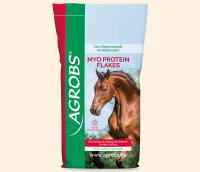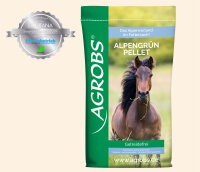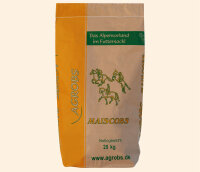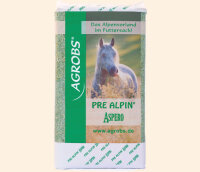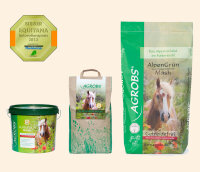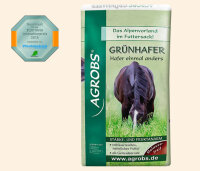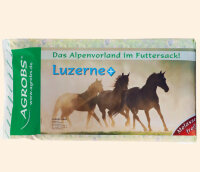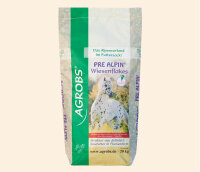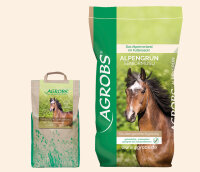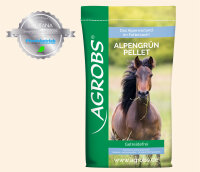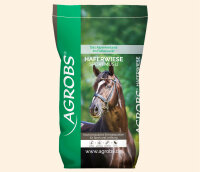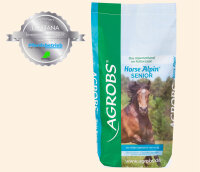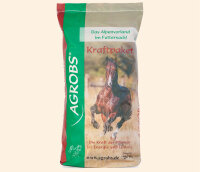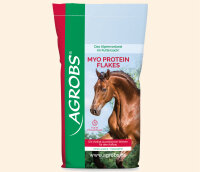Feed material for horses
Lucerne, also known as alfalfa, is the oldest forage plant of all. The Persians fed it to their horses as early as 500 BC. Today, alfalfa is often used as a structural supplement in numerous muesli mixtures. However, due to its valuable feed properties, such as high-quality protein, ß-carotene, vitamins and minerals, alfalfa is also very important in pure form in horse feed.
Lucerne is an ideal concentrated feed, especially for breeding, sport and young horses. A significant advantage of alfalfa is that it does not put any strain on the horse's digestive tract or metabolism, as is the case with cereal feed, and yet it provides sufficient energy.
Furthermore, the high calcium content of alfalfa makes it possible to balance phosphorus-containing rations, which are the result of a rich cereal feed, and thus to bring the Ca:P ratio back into balance. The calcium contained in alfalfa is an important building block for healthy bone growth in young horses and prevents bone damage in sport and performance horses.
Due to the gentle drying and processing of the whole plant, nutrients and vitamins are preserved.
INGREDIENTS : complete alfalfa plant from Bavarian cultivation
AREAS OF USE
- as supplementation to and for enhancement of the basic feed
- as substitute for concentrated feed respectively grain
- as supplier of protein and energy for breeding and sport horses as well as for growing horses
- as supplier of essential fatty acids
FEEDING RECOMMENDATION
- for enhancement of basic feed: 300 to 500 g per 100 kg ideal body weight per day
- as grain substitute: 1.2 kg substitutes 1kg of grain
- as feed for sport and breeding horses: 500 to 800 g per 100 kg ideal body weight per day
Progressive introduction, AGROBS® suggests to generally soak cobs.
ANALYTIC COMPONENTS
| crude proteins |
15,70 % |
lysine |
0,76 % |
| crude oil and fats |
2,40 % |
methionine |
0,19 % |
| crude fibre |
26,20 % |
cystine |
0,11 % |
| crude ash |
9,50 % |
threonin |
0,55 % |
| |
|
|
|
| calcium |
1,46 % |
starch |
0,10 % |
| phosphorus |
0,32 % |
sugar* |
3,17 % |
| magnesium |
0,22 % |
fructan |
2,17 % |
| chloride |
0,30 % |
|
|
| sodium |
0,016 % |
digestible energy |
7,93 DE MJ/kg |
| potassium |
2,09 % |
metabolisable energy |
6,10 ME MJ/ kg |
| sulphur |
0,23 % |
precaec. dig. crude protein |
10,33 % |
| |
|
|
|
| zinc |
31,00 mg/kg |
|
|
| manganese |
106,70 mg/kg |
|
|
| copper |
7,20 mg/kg |
Vitamine E |
31,10 mg/kg |
| selenium |
<0,33 mg/kg |
ß-carotene |
28,00 mg/kg |
The analysed values are of native origin. * The analysed sugar value is included in a purely native way. No artificial sugar has been added.
Status 01/2022
Product safety information
Manufacturer information:
Agrobs

 German
German French
French